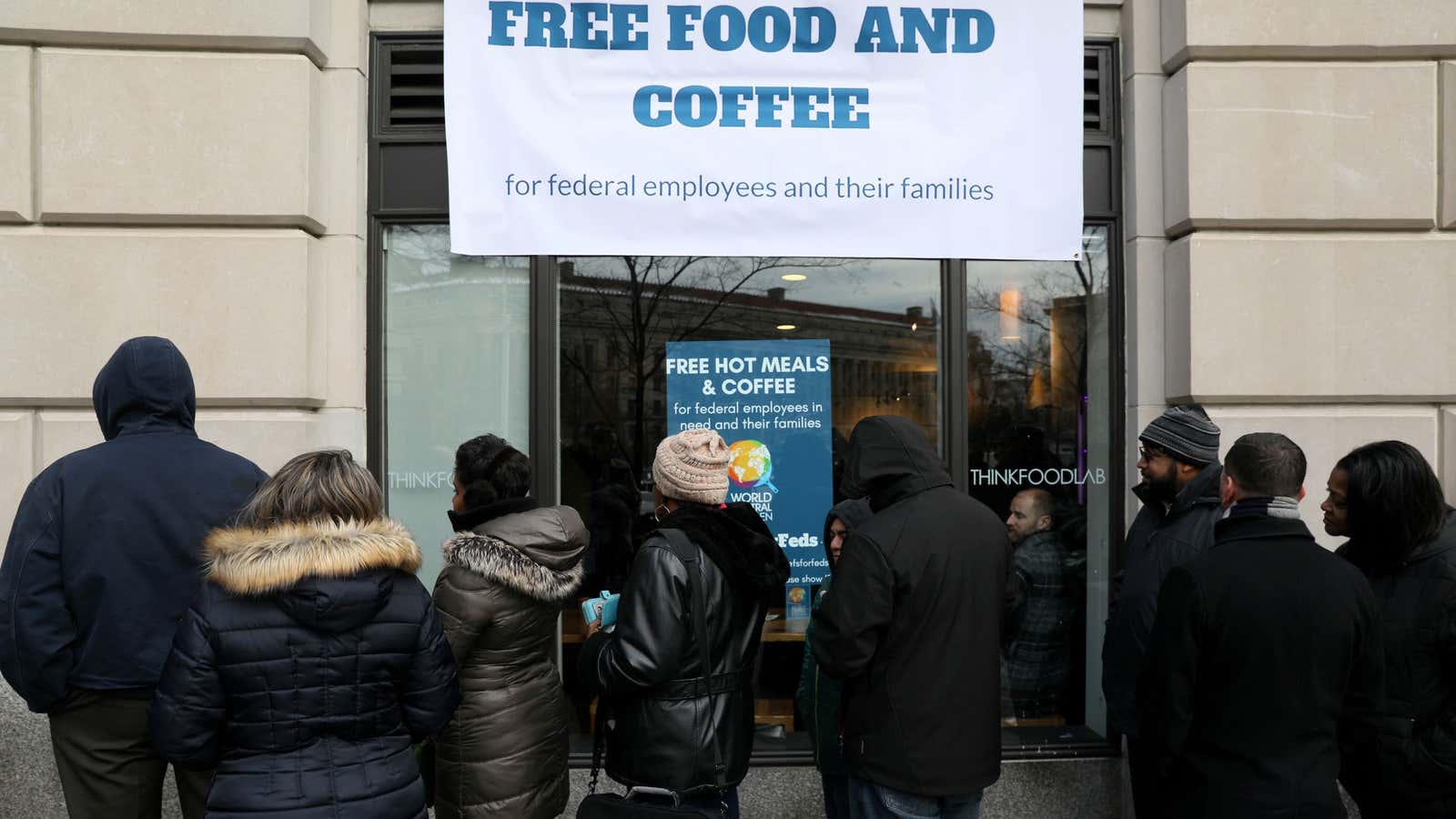Furloughed federal workers are turning to Uber, Lyft, and Airbnb as the longest government shutdown in US history drags on.
The AP has their stories: Cheryl Inzunza Blum, an immigration lawyer on contract with the federal government, started renting out a room in her home in Tucson, Arizona. Chris George, a furloughed forestry technician supervisor for the Department of Agriculture in Hemet, California, is making $10 per hour driving for Lyft. Kevin Hassett, chairman of the White House Council of Economic Advisers, told reporters on a conference call that a “long-time dedicated employee” was driving for Uber.
“Making ends meet” is a favorite phrase of the gig economy—Airbnb in particular is fond of talking about ‘middle-class hosts trying to make ends meet’—and the government shutdown has given it new life. Ends are not meeting for many federal employees, who have already missed one paycheck and are on track to miss a second. While actual data is hard to come by, Twitter is filled with stories of workers who’ve wound up driving for Uber or Lyft as a stopgap measure.
“We love it when new driver-partners join the platform, but this is most definitely not how we want new driver-partners to join the platform,” Uber CEO Dara Khosrowshahi told CNBC in an interview on Jan. 23. “We haven’t quantified it, but it’s definitely happening in DC, and it’s happening to the most needy.”
The hardships inflicted by the government shutdown are useful case study in how gig work can help people mitigate an earnings shortfall. The JPMorgan Chase Institute figured this out back in 2016, concluding that people who did work like driving for Uber or odd jobs on TaskRabbit earned no more in the months they spent on one of these “labor” platforms than in any other month. Gig earnings kept their monthly net income at a steady level but didn’t increase it. People who rented assets on a platform like Airbnb, on the other hand, tended to pocket a bit of extra money in those months.
Gig economy work, in other words, is good for softening short-term financial shocks. Workers flocked to Uber and Airbnb after losing their jobs and retirement savings in the 2008 financial crisis. The effect during and after the last recession was so great that well-known labor economists Alan Krueger and Lawrence Katz originally interpreted it as a massive shift in the American labor force (they recently amended their findings).
Gig work may be less well-suited to longer or full-time employment, as many a frustrated Uber driver would tell you. But in the case of the current shutdown, most federal employees are probably looking for a quick fix rather than a long-term change. They don’t expect to be out of work indefinitely and don’t need a new job; they need a way to make money while their paychecks aren’t coming in. Driving for Uber is one of the rare jobs you can get quickly and do flexibly, with little or no commitment.
“One of the benefits of Uber is that for people who are displaced temporarily—if they lose their job, if something happens and they need some earnings opportunities—Uber is there,” Khosrowshahi said. “And then when they don’t need Uber, they can kind of move on.”
An earlier version of this post appeared in Oversharing, a newsletter about the sharing economy. Sign up for it here.
